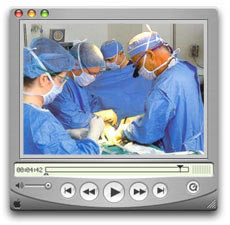Why She Chose Chapel Hill Tubal Reversal Center
Roslyn, a Chapel Hill Tubal Reversal Center message board member since 2008, is scheduled for tubal reversal surgery later this month. She posts her impressions of the staff on the message board, describing the staff members as polite, caring, and patient. Read more comments from patients on the website and on the Patient Satisfaction page.
This is topic Why did you choose CH? in forum Questions about Tubal Reversal at Tubal Reversal Message Board.
Posted by WIMom27
I am about 90% sure I will be coming to Chapel Hill Tubal Reversal Center for my tubal reversal , but still have a few questions I'm trying to get figured out in my own mind. I would appreciate any of you ladies out there who are willing to share your reasons with me why you chose CH and how you have felt about your experiences with them. Thanks!
Posted by christbride
The message board was the main reason i decided on CH. This was the only place i could get "real" feedback on everyone's experience and not just testimonials they posted on their site and the only site that gave live statistics on their results. and it was much cheaper than local tr places. and this is his specialty and he does so many surgeries a day i figured he must know what he's doing. Dr. Monteith was interning at the time i had my tr done. it was successful. i have a 8 1/2 month old baby girl. definitely the best decision i made.
Posted by praying4more2009
I had a wonderful Experience with CH:)
When I started to do my research I just found myself drawn to this one.. maybe it was the online community and reading everyone's experience there and all the success stories. Everything I read was exactly what I got! Absolutely wonderful staff and service there. When I met Dr. Monteith I felt at ease..he was very understanding and also was honest about the fact that he did not know from reading my report if I had enough tube left without further testing..We chose to take our chances and I was happily surprised to have him tell me I had 5 &5.5cm left:)
What really made me decide on Ch was when I went to my own OBGYN and asked if he would reverse me and he said, 'yes i could, but I don't really recommend it at your age.. id suggest IVF.' I went home feeling deflated. The more I thought about it, I realized that yes my obgyn can do it..BUT he probably doesn't do them often.So maybe if I wanted the best chance, I should go somewhere that this is ALL they do. That was the biggest reason..they do TR everyday and that is ALL they do there. I had my TR done oct20-09
Posted by Hopeful1970
I came to CH after 7 years of trying to get a reversal done through the military. I had great care at CH. Dr. Monteith gave me my life back. I had my TR done on 11/23/09. I have 7cm on my left and 5.5cm on my right ( tubal length ). You will enjoy the experience.
Sabrina
Posted by Sally, RN
WIMom27--If you have any questions at all feel free to call our office and speak with any of the knowledgeable tubal reversal nurses . They will take the time that you need to get any questions answered. The message board is also a wonderful place for support and first hand information about how patients really feel about there care. December is a wonderful time to get your reversal done so you can have a happy new year in 2010.
Sally,RN
Posted by Erika J, RN
We are here to answer any questions or address any concerns you may have. You can contact us for tubal reversal questions at 919-968-4656.
Erika J.
Posted by GodisGood68
Hi, I have been on the message board since early 2008. The information and support we get from each other is phenomenal! The staff of Chapel Hill Tubal Reversal Center are very polite and caring. I'm having my TR Dec. 29th. Even trying to get all my bloodwork and medical information, they are very patient and polite every time I called or emailed with questions. When I told my GYN/OB my desires to have TR she did not know that I was looking at CH, and she referred them to me. How incredible is that!!! I am located in Bermuda. So, that is why I choose CH. Sorry for the long story, but I hope it answers your questions.
Roslyn

 Some women will accidentally become pregnant after an endometrial ablation. The majority of these pregnancies have been among women who were not using birth control or not using a reliable form of birth control or among those who have had a failed tubal ligation or vasectomy. Some pregnancies have been among women who have intentionally had either
Some women will accidentally become pregnant after an endometrial ablation. The majority of these pregnancies have been among women who were not using birth control or not using a reliable form of birth control or among those who have had a failed tubal ligation or vasectomy. Some pregnancies have been among women who have intentionally had either 